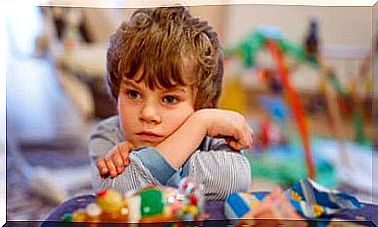8 Tips For Raising A Mentally Strong Child

The world is full of challenges. Being mentally strong is essential to face them. Raising a mentally strong child who is capable of meeting the challenges he has to face in order to get ahead is vitally important.
A mentally strong child is prepared for the challenges of the world. These children are able to deal with problems productively, recover from failures effectively, and cope with difficulties competently.
Keys to the development of mental strength
The development of mental strength is done on the construction of resilience, self-esteem, confidence and self-efficacy. Helping children develop mental strength requires an approach that integrates:
- The replacement of negative thoughts with more realistic thoughts.
- Control of emotions.
- Productive behavior, even in unfavorable circumstances.
Strategies for the development of a mentally strong child

There are several useful educational strategies and tools that can help children grow mentally stronger and develop mental strength. Among them, the following stand out.
Teach specific skills to correct misbehavior
When a child misbehaves we have an excellent opportunity to teach him specific skills, such as problem solving skills, impulse control, and various self-discipline skills.
skills will help you learn to behave productively . Thus, a mentally strong child will know how to face difficult circumstances and setbacks and to solve their problems.
Letting children make mistakes
Your child will learn valuable life lessons if you allow him to make his own mistakes. A parent’s job is not to protect their children from mistakes, but to be there to teach them that mistakes are part of the learning process, so they should not feel embarrassed or uncomfortable about it.
Also, allow natural consequences to happen, as long as it is safe to do so, and talk with children about how to avoid repeating the same mistake the next time. Many parents, thinking that they do good to the child, tend to overprotect him so that nothing bad happens to him. However, what they are actually doing is preventing them from developing their ability to correct their faults.
As child and adolescent psychologist Nuria García points out, ” parents need everything to go well, they handle any unforeseen events themselves, wrap their children in bubbles and elevate them on a pedestal within the family nucleus, although it does not have to be the center.” However, the psychologist points out that this form of upbringing is an obvious mistake, since ” in the long run they will get fearful and insecure children, with few resources to get the chestnuts out of the fire themselves . “

Take care of negativity towards them
It is difficult for children to feel mentally strong when they themselves are humiliated or when they are predicting pessimism and poor results. Only then can you teach a child not to be negative and to think more realistically.
Allowing the child to feel uncomfortable
Although it may be tempting to help a child when he is struggling with uncomfortable feelings, rescuing him from all anguish will only reinforce his disability. If the child feels frustrated, bored or angry, give him the opportunity to solve the problem independently.
Affirm the child’s personal responsibility
Gaining mental strength implies accepting personal responsibility. For this, it is necessary to allow the child to explain his actions, but without making excuses or blaming others for what he has done.
Teach emotional control skills
To build children’s mental strength it is necessary for them to be aware of their emotions. It is not about suppressing their feelings, but about teaching them to choose healthy ways to deal with those feelings.
Nicole Perry, a researcher at the University of Minnesota, points out that it is important for parents to allow children to experience all their emotions and give them their space. In this way, Perry says, they will more effectively develop their sensitive and behavioral abilities.
Be a model of mental strength
There is no better teacher than the example. Not only do you have to talk to a child about what to do, but show it to him. The imitative learning is essential for parenting. Their first references are the parents, so they will repeat everything they do. In this way, setting an example with good behavior is one of the best ways to teach our little ones.
In addition, it is very convenient that you talk to the child about your personal goals and that you explain what you are doing to improve. Making improvement a priority in your own life is the best way to teach a child to be strong.









